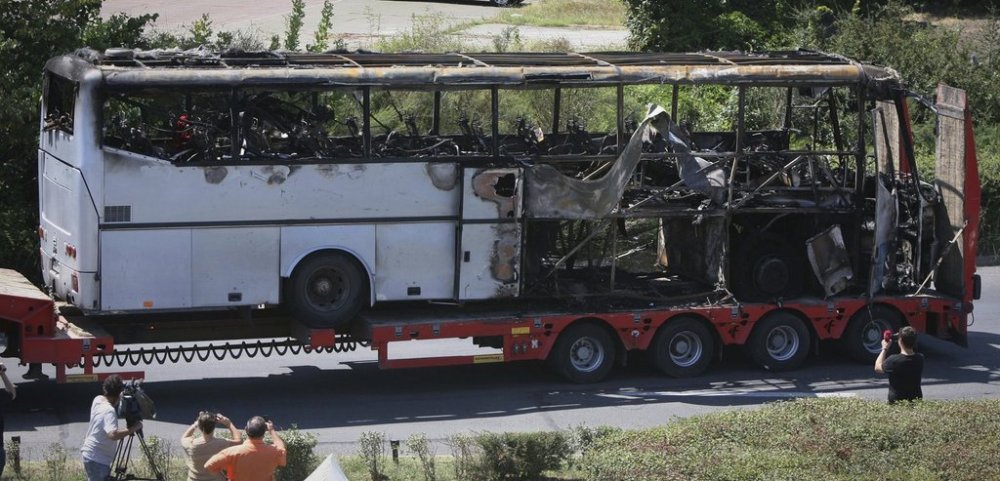Lebanese suicide bomber who killed 5 Israelis in Bulgaria is buried at Hezbollah cemetery
Advertisement
Read this article for free:
or
Already have an account? Log in here »
To continue reading, please subscribe:
Monthly Digital Subscription
$0 for the first 4 weeks*
- Enjoy unlimited reading on winnipegfreepress.com
- Read the E-Edition, our digital replica newspaper
- Access News Break, our award-winning app
- Play interactive puzzles
*No charge for 4 weeks then price increases to the regular rate of $19.00 plus GST every four weeks. Offer available to new and qualified returning subscribers only. Cancel any time.
Monthly Digital Subscription
$4.75/week*
- Enjoy unlimited reading on winnipegfreepress.com
- Read the E-Edition, our digital replica newspaper
- Access News Break, our award-winning app
- Play interactive puzzles
*Billed as $19 plus GST every four weeks. Cancel any time.
To continue reading, please subscribe:
Add Free Press access to your Brandon Sun subscription for only an additional
$1 for the first 4 weeks*
*Your next subscription payment will increase by $1.00 and you will be charged $16.99 plus GST for four weeks. After four weeks, your payment will increase to $23.99 plus GST every four weeks.
Read unlimited articles for free today:
or
Already have an account? Log in here »
Hey there, time traveller!
This article was published 12/04/2025 (240 days ago), so information in it may no longer be current.
BEIRUT (AP) — The Lebanese-French national who was accused of detonating explosives in a 2012 attack in Bulgaria that killed five Israeli tourists was buried in a cemetery designated for fallen Hezbollah fighters, said a former Lebanese security official who negotiated the return of his remains.
The bomber was identified as Mohammad Hassan El-Husseini, 23. On July 18, 2012, he struck a group of Israeli tourists at Burgas Airport in Bulgaria, killing five Israelis, a Bulgarian bus driver, and injuring nearly 40 others, authorities said.
The explosion occurred shortly after the tourists, arriving on a charter flight from Tel Aviv, boarded a bus en route to their hotel. Israeli and Bulgarian authorities blamed the Iranian-backed militant group Hezbollah.

El-Husseini was eventually identified through a DNA analysis by Bulgarian investigators working with Israeli, U.S., and European intelligence agencies.
The former head of the Lebanese General Security intelligence agency, Abbas Ibrahim, told The Associated Press that he helped negotiate the return of the remains Thursday on behalf of El-Husseini’s family, who hired a lawyer in Bulgaria to handle the legal proceedings. He was buried Friday, Ibrahim said.
El-Husseini had entered Bulgaria days before the bombing using a fake Michigan driver’s license. He was part of a three-man Hezbollah cell operating across Europe, according to investigators. His alleged accomplices — Meliad Farah, an Australian-Lebanese, and Hassan El Hajj Hassan, a Canadian-Lebanese — were charged in absentia in 2016. Both remain at large despite international arrest warrants.
Investigators said the men traveled through Poland, Romania, and Germany, using fake identities to gather materials for the attack. Intelligence officials believe Hezbollah coordinated their training and logistics.
___
This story corrects the day when the body was returned.

